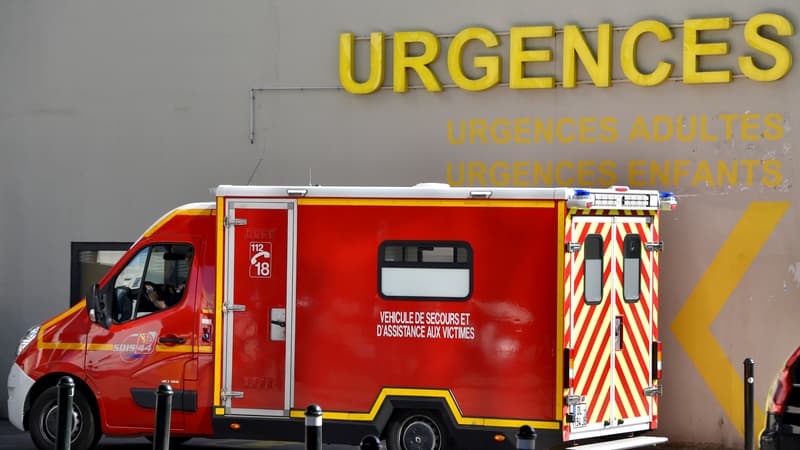“We work at the service of the human being in subhuman conditions,” denounces an emergency nurse at the Bel-Air de Thionville hospital, in Moselle. Since Friday, the situation has been “particularly tense” in this emergency department, according to the Metz-Thionville CHR.
In fact, according to union sources, 55 nurses and 59 nursing assistants were placed on sick leave, often at the decision of the ER doctors themselves.
“The carers needed it, they got over it and they also need to think about them,” Cyrille Louis, a representative of the South union at the hospital, explained on BFMTV on Monday.
“They have to take care of themselves in order to take good care of others,” he adds.
A degraded situation for weeks.
For several weeks, the situation had worsened in the Thionville emergency room, “for various reasons combined,” the CHR noted in a press release on Saturday.
The CDH thus mentions “the triple epidemic of influenza, bronchiolitis and Covid-19 that leads to emergency care and then hospitalization of a significantly higher number of people than usual at this time” and “the lack of medical personnel and assistance”.
It also underlines “a reduced healthcare offer in the city”, while a group of liberal doctors had called for the closure of medical offices from December 26 to January 2. Health Insurance estimated between 5 and 10% the decrease in the activity of general practitioners last week. The collective “Médicos del mañana” requested this week an extension of the strike, which aims to obtain a revaluation of the consultation.
No more surveillance in the ER
In this context, emergency caregivers in Thionville work in an extremely degraded manner, denounces a nurse on condition of anonymity.
“We can’t feed people who have been there for 80 hours, make changes like we should,” he says on BFMTV.
“Patients spend long hours on stretchers. These people can wait 12 to 20 hours to see a doctor. And when they have seen it, they have to look for a bed in the hospital, which is also complicated, ”he adds. .
Nurses “can no longer monitor diabetics, tensions, the state of consciousness, health, people who are waiting,” also denounced Patricia Schneider, nurse and representative of the Sud-Santé union at the CHR, on BFMTV this Monday .
“They are afraid of making professional mistakes that can have dramatic consequences” and of “finding dead patients when they open a door,” says Patricia Schneider.
White plan and template reinforcements
Caregivers “require additional staff” to provide “a modicum of humanity” to patients, he explains.
For this reason, the CDH launched the white plan this Saturday, a system of emergencies and health crises that allows the hospital resources to be organized to respond to this situation. In this context, the Samu staff provides vital emergencies and the rest of the patients are transferred to other hospitals, Patricia Schneider explained on BFMTV on Monday. The CHR justified this white plan by “a context of mass casualties by caregivers in the Bel Air Emergency Department expressing exhaustion of equipment.”
Contacted by BFMTV, the CHR leadership also indicates that it has implemented “many actions” during the weekend of December 31, “reducing the tension in the teams.” Thus, he cites “the end of staff vacations” that allows “the reopening today of additional beds for post-emergency care” and “staff reinforcements, organized on a voluntary basis.”
The health system in crisis
Christophe Prudhomme, an emergency physician from Seine-Saint-Denis and spokesman for the French Association of Emergency Physicians, says that “these work stoppages linked to staff burnout are the last bullet that staff have to make heard.”
He considers the situation in Thionville to be representative of that of public hospitals in general in France. “We need an urgent resuscitation for our health system, we must stop the speeches and the promises,” adds who calls for “strong political decisions.”
“I understand my fellow doctors in the city who are on the verge of madness today, just like us in the hospital,” the ER doctor said on BFMTV on Monday.
For the latter, “we must collectively ask ourselves what health system we want, in what conditions we want to work, all having the same objective, which is to be able to treat our patients correctly.”
Source: BFM TV


